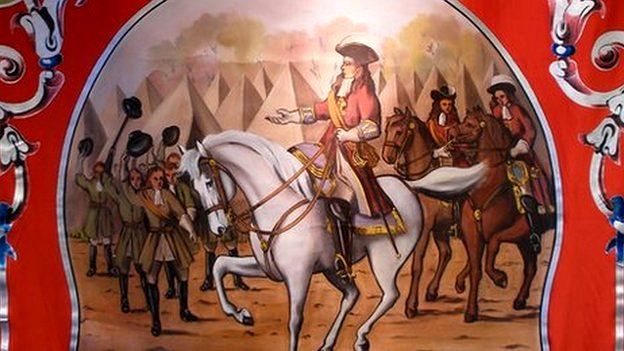In 1800s, the Orange Order, a Protestant fraternal organization, was founded in County Armagh, Ireland. The Order spread to Canada early in the 1800s, and soon had a significant presence here. In this post, we take a look at some of the orangemen in Canada during that time period. Specifically, we explore their role in Canadian politics and society, as well as their relationships with other groups and organizations.
Most of the Protestant Orangemen from Ontario who took part in the riots during the "Reign of Terror" had been on Colonel Garnet Wolseley's expedition from Eastern Canada in 1870. They wanted to get back at Riel for killing Thomas Scott, another Orangeman, on March 4, 1870. They also wanted to catch the "murderer" and "traitor" Riel. The Globe, a newspaper from Toronto, wrote in September 1870, "The wildest chaos ruled."
800 of the Canadian volunteers were Orangemen, and these men made it clear how much they hated and looked down on the Métis. Some of them were people Riel had thrown out of the settlement (including Canadian Party leader Schultz). These racist party members were thirsty for the blood of people who were half French.
In Winnipeg, a group of militiamen were in the Red Saloon. Farquharson mentioned Elzéar Goulet, who was on the jury of six people who found Scott guilty in the court martial. This was the group of people who found Scott guilty. The Canada Hotel was a saloon with no name at the time. There were a lot of Ontario Volunteers there. On September 13, some of them were drinking in this saloon when someone said, "That's Goulet. He's the one who shot Scott."
The men were angry and wanted to get back at Goulet, so they chased him. Goulet ran for his life to the Red River and jumped in to swim to St. Boniface. Fearing that they would lose their target, the angry crowd that was chasing him threw everything they could find at him and stoned him to death in the water. Sanders and Madigan from the Ontario Battalion, Robert Mulligan from the Red River Expedition, and a man named Campbell were there.No one was held responsible for killing the man.When they wrote about Goulet's death, the Toronto-based Daily Telegraph said, "A French Métis is one less criminal."
Lorette, Goulet's 17-year-old daughter, was raped by Red River Expedition soldiers. Colonel Jarvis was told who was involved in the rapes, but he said it was none of his business. The police in Manitoba took... but there were no charges.
“The only way the to eliminate the Métis obstacle was for the Canadian party to raise its own army. The men for this army were to be found in the orange lodges in ontario” Jean Teillet (The North West Is Our Mother)
The Canadian government's refusal to recognize the Metis as an Indigenous people has led to a history of violence and terror. The events that unfolded in 1800 are a prime example of this, and they must be remembered so that we can work towards reconciliation.

